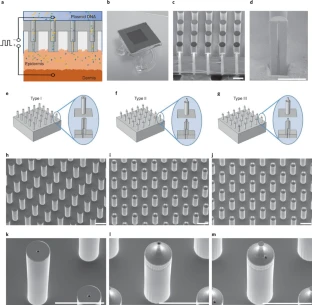Science Daily December 10, 2021
A team of researchers in the US (Indiana University, Purdue University, industry, Veterans Administration Medical Center, University of Chicago) has developed a silicon device that can change skin tissue into blood vessels and nerve cells has advanced from prototype to standardized fabrication. The technology, called tissue nano transfection, is a non-invasive nanochip device that can reprogram tissue function by applying a harmless electric spark to deliver specific genes in a fraction of a second. The nanofabrication process typically takes five to six days, and in vivo takes 30 min. In laboratory studies, the device successfully converted skin tissue into blood vessels to repair a badly injured leg. The technology is currently being used to reprogram tissue for different kinds of therapies, such as repairing brain damage caused by stroke or preventing and reversing nerve damage caused by diabetes. Their current paper provides engineering details about how the chip is manufactured and enables other researchers to participate in this new development in regenerative medicine…read more. TECHNICAL ARTICLE

A schematic view of the TNT process… Credit: Nature Protocols volume 16, pages5707–5738 (2021)